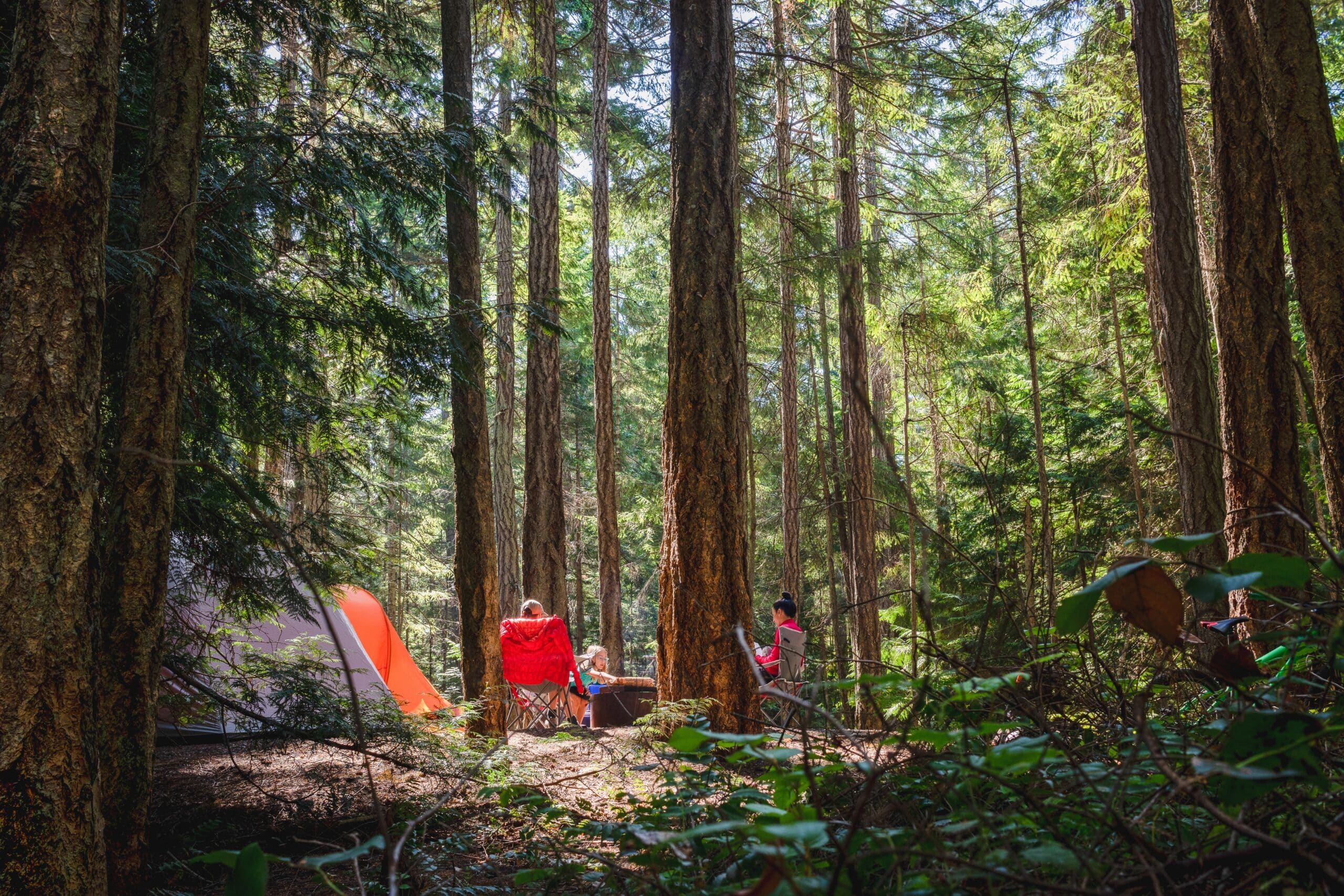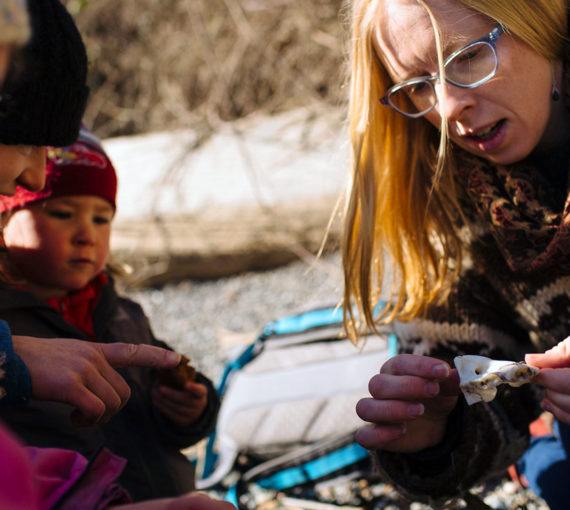
Research shows that the richness of natural environments support introspection and provide a haven from the pressures of modern life. (Photo: Greg Rosenke via Unsplash)
Connecting with nature has a wide range of benefits for physical and mental wellbeing. Whether it’s strolling through a local park, walking the shoreline or sitting outside during lunch, exposure to nature has been linked to improved attention, lower stress, better mood, reduced risk of psychiatric disorders — even upticks in empathy and cooperation. Even just a few moments of green can perk up a tired brain.
Time in nature is also a reminder that everything is interconnected. If we disconnect from the natural world, we become disconnected from who we are. Understanding that we’re part of nature and acting on that understanding makes us healthier and happier, and encourages us to care for the natural systems around us that support all life.
What we do to nature, we do to ourselves
David Suzuki
Want to spend more time outdoors this spring and summer but don’t know where to begin? Looking for new ways to meaningfully spend time in nature? Find inspiration in these tips!
Remember: When enjoying time outdoors, tread lightly and minimize your impact, to help preserve ecosystems, protect wildlife habitats and uphold the balance of nature. Honour your surroundings by packing out what you pack in and follow the principles of “leave no trace.”
Find inspiration in these tips

Enjoy food outdoors
- Eat alfresco. Invite the members of your family, household or co-workers to lunch on a patio or in a local park or green space. Make it a regular habit by starting an outdoor food sharing club. You’ll foster community and healthy eating habits.

Come into your senses in nature
- Breathe barefoot. Practice grounding. Find a quiet green place, kick off your shoes and simply stand. Feel Earth beneath your feet. Take slow breaths, eyes closed or unfocused.
- Use your feet. Walk, bike, scooter or skate instead of driving. You’ll discover new sights, sounds and smells along the way. Try a walking meditation.
- Free your mind. Being in nature can help reduce rumination, a mental pattern associated with increased risk of depression, anxiety or obsessive-compulsive disorder. Walking in nature decreases neural activity in the brain region active during rumination.
- Tune in. Find a quiet spot by a local stream or water body and notice the calming sounds of water. Listen for birds and insects anywhere — including from an open window!
- Cultivate mindfulness. Unplugging into nature at the end of the day improves memory and attention. Find time after work to take a quiet stroll through a local park.
- Sense scents. Smell is a great tool for eliciting memories and processing emotions. Notice the fragrance of the air around you. Stop to smell the flowers. Get a waft of the ocean.
Rest and restore by spending time in nature
Humans have always been utterly dependent on nature to survive and thrive. So spending time in nature can bring the ultimate wellness.

Look around you
- Savour the sunset or sunrise. Nature’s visual elements promote soft fascination, a gentle focus for brains to rest, wander and recover from the daily hassles of life.
- Cloud watch. Cloud watching any time of day clears the mind and calms the senses.

Plan activities
- Camp. Enjoy the three-day effect. When you immerse yourself in nature for longer periods of time, you “clean your mental windshield” and improve your thinking.
- Take a hike. Research shows that the richness of natural environments supports introspection and provides a haven from the pressures of modern life.
- Read outside. Grab a beverage and a book and get some fresh air and fresh ideas.
- Take a nap. Grab a blanket and find a quiet, shady spot at your local park or beach.
- Walk a dog. A dog’s nose knows nature like no human ever will! If you don’t have one, offer to take your neighbour’s, a friend’s or ask your local shelter if you can exercise one of their pooches.
- Go swimming. Swimming promotes physical and mental wellbeing. It releases endorphins and can help reduce stress. Cold water bathing assists in fat loss, boosts muscle recovery, and increases energy and circulation.
- Play a sport. Gather some friends or join a club! Find an outdoor court, field or quiet nearby cul-de-sac.
- Exercise. Take your yoga mat and home equipment to the park. Swap spinning for cycling and the treadmill for trails.
Include the kids in your life!
Kids who experience nature’s mystery and beauty will grow up caring about protecting it.

Get your hands dirty
- Dig in. Exposure to soil bacteria Mycobacterium vaccae is like a natural antidepressant, activating brain cells that improve mood, reduce anxiety and facilitate learning.
- Attract pollinators. Welcome butterflies and bees all summer long! Plant a pollinator-friendly garden in your yard or community garden or on your balcony or windowsill.
- Plant a patch. Gardening has profoundly positive effects on wellbeing and self-esteem. People who garden have more zest for life and higher levels of optimism than non-gardeners.
Take the One Nature Challenge!
Boost your wellbeing by adding a daily dose of nature to your routine. Spend 30 minutes a day in the great outdoors for 30 consecutive days to kick-start a nature habit that lasts all year.



